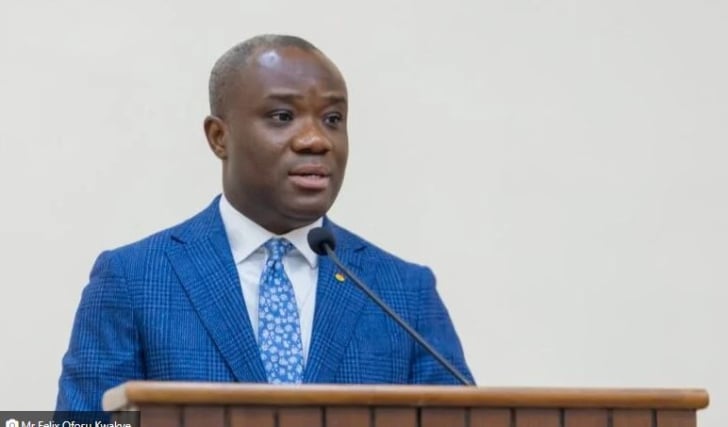The newly implemented Code of Conduct for public officials in Ghana has stirred public debate, particularly regarding its stipulation of a GH₵20,000 limit for undeclared gifts. Government Communications Minister, Felix Kwakye Ofosu, has defended this threshold, arguing that it strikes a balance between acknowledging cultural norms of gift-giving and maintaining the integrity of public office. He posits that a gift below this amount is unlikely to unduly influence a minister or high-level appointee, given their societal standing and the expectations associated with their positions. The minister emphasized that the code’s intention is not to prohibit gift-giving outright, but rather to establish clear boundaries and ensure transparency.
Mr. Kwakye Ofosu highlighted the cultural significance of gift-giving in Ghana, where it is often viewed as a gesture of goodwill or tradition, particularly within the political sphere. He acknowledged that gifts may originate from constituents or individuals seeking political favor, but stressed that the code mandates the declaration of all gifts, regardless of their value. This declaration requirement, he argued, serves as a safeguard against potential conflicts of interest and ensures accountability within the public sector. The minister underscored that the code aims to regulate rather than prohibit this cultural practice.
The procedure for handling gifts exceeding the GH₵20,000 threshold involves surrendering them to the state. Mr. Kwakye Ofosu explained that such gifts cease to be personal property and become assets of the state, to be utilized for public purposes as determined by the government. This measure prevents personal enrichment from gifts and reinforces the principle that public office should not be exploited for private gain. The minister emphasized that these surrendered gifts are not for the personal benefit of any individual, but rather for the collective good.
Furthermore, the Code of Conduct explicitly prohibits public officials from acquiring state properties, including vehicles and land. Mr. Kwakye Ofosu condemned such actions as unethical and a blatant abuse of public office, emphasizing the government’s zero-tolerance stance on this issue. He warned that officials found engaging in such practices would face immediate dismissal. This provision aims to prevent the misuse of public resources for personal gain and uphold the integrity of public service. The code underscores that holding public office is a privilege entrusted to individuals to serve the public, not to enrich themselves.
While acknowledging that the Code of Conduct does not possess the legal weight of a statute, Mr. Kwakye Ofosu stressed its binding nature on all appointees of the current administration. He highlighted that the code is enforced by the President’s authority and reflects the ethical standards expected of public servants. He drew parallels with ethical codes prevalent in various institutions, emphasizing that the Code of Conduct serves a similar purpose within the government. Though not legally enforceable in the same manner as law, the code carries significant weight due to the President’s commitment to its implementation and enforcement.
The Code of Conduct, launched by President John Dramani Mahama, represents a key reform within his administration’s broader efforts to enhance transparency and ethical conduct in public service. It is intended to foster a culture of accountability and integrity among public officials, ensuring that they prioritize the public interest above personal gain. The code’s implementation signals the government’s commitment to upholding the highest ethical standards in public life and fostering public trust in government institutions. It reflects a broader drive towards good governance and responsible leadership within the public sector.














